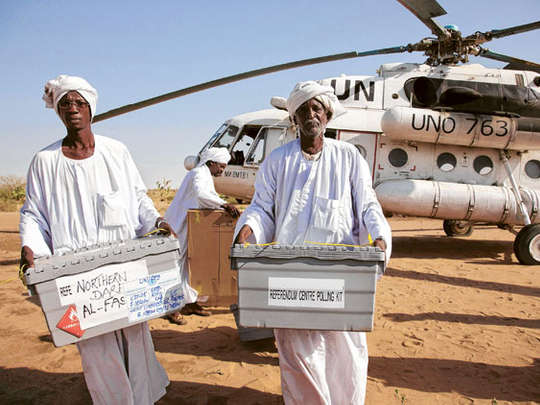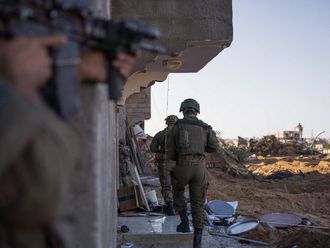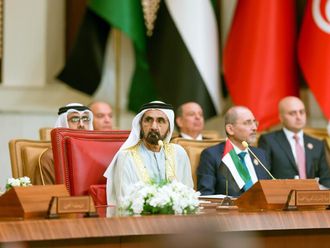
Cairo: Egypt should gear up for potential unrest in Sudan following a refrendum today, which is most likely to result in the separation of South Sudan from the motherland, Egyptian experts have warned.
"Most indications are that Sudanese southerners will vote for separation. But the emerging state will be preocupied for some time with building itself, given that of the nine million peole living in the South, around 80 per cent are illiterate," said Adel Sulaiman, a strategic expert.
"In addition, the nascent state will have huge problems facing its development despite its oil wealth," he told Gulf News.
"A situation likes this will open the door for foreign powers to establish themselves there. They include Israel, which has been in general active in Africa. Therefore, Egypt should have its own plan to grapple with the resultant challenges."
Active role
"Egypt should play an active development and cultural role in the northern and southern parts of its southern neighbour [Sudan]," he said, noting that Egypt already has a consulate in Juba, the major city of South Sudan, and launched irrigation and medical projects there. "Egypt should not be accused of negligence towards Sudan," said Suliman. "The regime in Khartoum should take the full blame for the looming separation of South Sudan. The same would happen in Darfur [in western Sudan] and in northern areas if the Khartoum government did not change its way of ruling."
To Hani Raslan, who heads the Sudan Unit at the state-run Al Ahram Centre for Strategic Studies, Sunday's referendum will not resolve a series of problems related to South Sudan's break-up.
"They include demarcation of borders, as well as sharing of oil, water, assets and debts. There will be six months for resolving these issues. If things were sorted out, then there would be good relations between South and North as two separate states. If not, conflict between them would be inevitable," Raslan told Gulf News.












